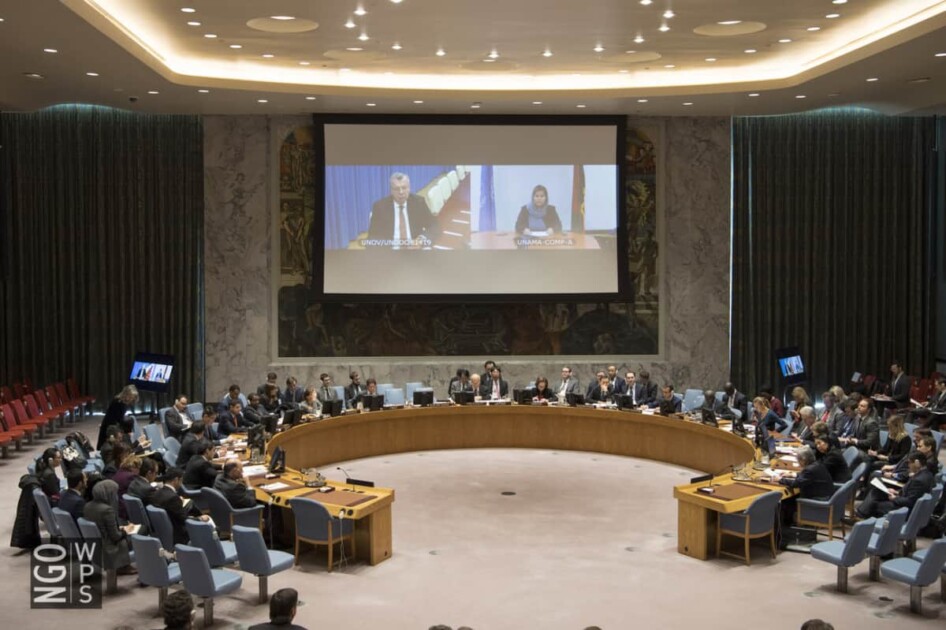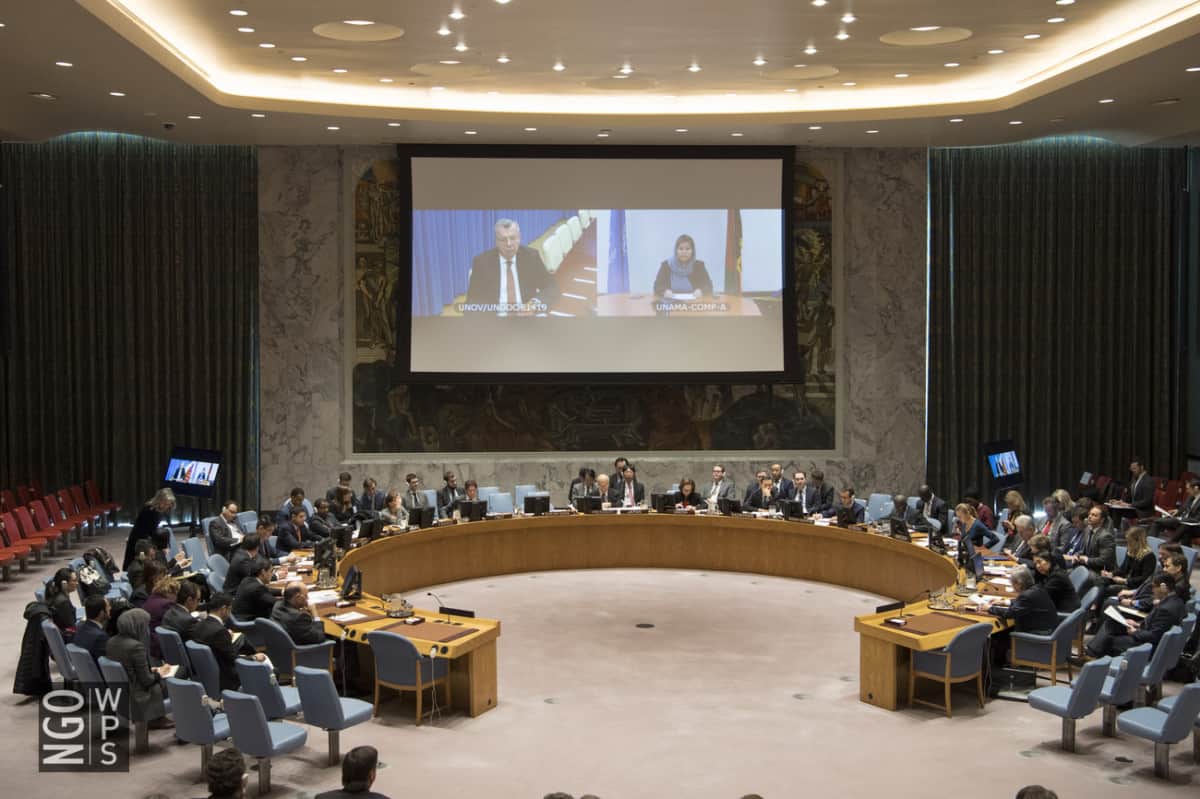Democratic Republic of the Congo
Women in the Democratic Republic of Congo continue to face widespread sexual violence, disease, and displacement in conflict situations arising from clashes between dozens of armed groups. Often, sexual violence and rape are used as terror tactics and weapons of war, and despite the ratification of the Convention on the Elimination of All Forms of Discrimination against Women (CEDAW) and the Women’s Platform for the Peace, Security and Cooperation Framework, women are still largely underrepresented in peacebuilding efforts. Additionally, women activists face rape as a form of torture by government actors who disagree with their political activity. The United Nations Organization Stabilization Mission in the DRC (MONUSCO) aims to provide protection for civilians, including reducing the threat of armed groups perpetrating sexual and gender-based violence, monitoring and reporting on sexual violence and ensuring women’s participation in stabilization and national political dialogue.
Democratic Republic of the Congo
Women in the Democratic Republic of the Congo continue to face widespread sexual violence, disease, and displacement in conflict situations arising from clashes between dozens of armed groups. Often, sexual violence and rape are used as terror tactics and weapons of war, and despite the ratification of the Convention on the Elimination of All Forms of Discrimination against Women (CEDAW), and the Women’s Platform for the Peace, Security and Cooperation Framework, women are still largely underrepresented in peacebuilding efforts.
Additionally, women activists face rape as a form of torture by government actors who disagree with their political activity. The United Nations Organization Stabilization Mission in the DRC (MONUSCO) aims to provide protection for civilians, including reducing the threat of armed groups perpetrating sexual and gender-based violence, monitoring and reporting on sexual violence and ensuring women’s participation in stabilization and national political dialogue.
Current and Past Recommendations to the UN Security Council (Monthly Action Points)
The Security Council is expected to renew the mandate of the UN Organization Stabilization Mission in the Democratic Republic of the Congo (MONUSCO). All existing WPS provisions should be maintained and language within the resolution related to women’s participation should be streamlined per good practice to read “the full, equal, and meaningful participation and leadership.” The outcomes of Informal Expert Group on WPS meetings (S/2019/296, S/2018/885, S/2018/362) should be reflected; thus far, they have been inconsistently integrated (NGOWG). In addition, the Council should:
- Ensure any new mandated tasks related to a potential transition are in line with good practice (S/RES/2429 (2018), OP 27), including by calling for regular consultations with diverse women, including women and gender non-conforming peacebuilders and human rights defenders, young women, women and girls with disabilities, Indigenous women and girls, and displaced women and girls; and by grounding decision-making and any related benchmarks in gender-sensitive conflict analysis.
- Update the language in the existing mandate to include “women human rights defenders” in protection of civilians efforts (S/RES/2502 (2019), OP 29(i)(a)) and request the mission to monitor threats and attacks targeting CSOs, including women’s rights groups, and restrictions on civic space (S/RES/2502 (2019), OPs 29(i)(a), 29(i)(d), 29(ii)(e)).
- Ensure that the drivers of conflict are addressed in a gender-responsive manner by updating the language across the mandate related to natural resources management (S/RES/2502 (2019), OP 29(ii)(b)), reconciliation efforts (S/RES/2502 (2019), OP 29(ii)(c)), and resolving inter-communal conflict (S/RES/2502 (2019), OP 29(ii)(d)), to explicitly note that efforts should be aimed at ensuring the processes are “gender-responsive,” informed by gender-sensitive conflict analysis, and carried out in consultation with women CSOs.
- Explicitly call on MONUSCO, in all priority tasks, to regularly consult with diverse women and women’s CSOs, including women and gender non-conforming peacebuilders and human rights defenders, young women, women and girls with disabilities, Indigenous women and girls, and displaced women and girls, and specifically support organizations providing frontline services to survivors and facilitating local reconciliation and peacebuilding (CEDAW/C/COD/CO/8).
- Call on the Government to ensure accountability and access to reparations for victims of GBV and add domestic violence and marital rape into its national legal framework (CEDAW/C/COD/CO/8).
- Call on the Government and international partners to ensure there is adequate funding for the implementation of the National Action Plan on Resolution 1325 and that the planning, implementation and monitoring is done in partnership with diverse women, including women and gender non-conforming peacebuilders and human rights defenders, young women, women and girls with disabilities, Indigenous women and girls, and displaced women and girls (MADRE).
Relevant Resources











